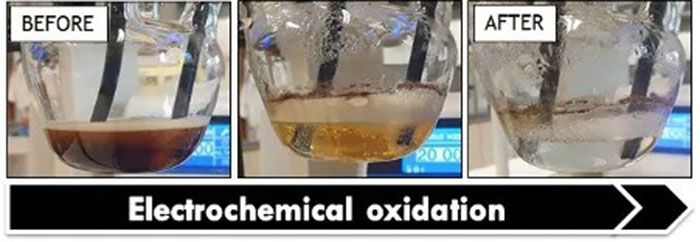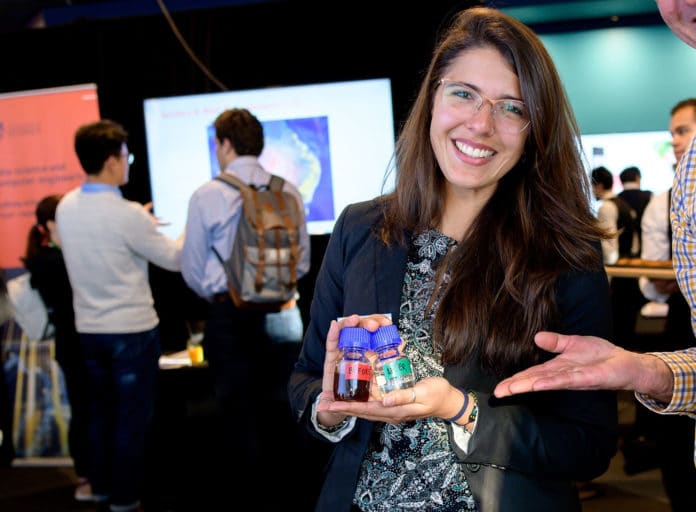In recent years, the problems of environmental protection, and especially water bodies, from pollution by industrial wastewater has become increasingly important. Finding suitable solutions for reuse or disposal is often very challenging and costly. Now, experts found a way of cleaning up heavily contaminated industrial wastewater, with a simple and scalable electrical process.
A team of researchers from the School of Chemical and Biomolecular Engineering developed an electrochemical oxidation process in order to clean up industrial wastewater that had been heavily contaminated with a cocktail of chemical pollutants during a biofuel production process.
For their study, the team at the University of Sydney run a pilot plant for the production of biofuels using naturally abundant microalgae. The process generates large amounts of heavily contaminated wastewater that contains carbon, nitrogen, and phosphorus. This wastewater was then treated with electricity using specialized electrodes.

The electrochemical method that the team used involved placing two electrodes into the water. They then discharged electricity through the water, which drove oxidation reactions near the electrode surfaces and transformed the organic contaminants into harmless gasses, ions, or minerals.
“We have employed an incredibly powerful process that eliminates even the most persistent non-biodegradable pollutants, such as pharmaceuticals and pesticides, as well as various classes of organic compounds that can be found in many industrial effluents,” said Julia Ciarlini Jungers Soares, lead author of the study.
The findings show that the process removed up to 99% of the carbon and attained a 96% discoloration of the wastewater. 82% of the organic nitrogen was converted from organic to inorganic forms, remaining in solution as ammonia and nitrate. Wineries, pharmaceutical manufacturers, and other industries that must comply with strict wastewater regulations are expected to benefit from these findings.
Further, the team plans to conduct the research focused on specific contaminants to better understand the chemical transformations that take place during electrochemical oxidation and will upscale the process.
Journal References:
- Electrochemical oxidation of nitrogen-rich post-hydrothermal liquefaction wastewater. DOI: 10.1016/j.algal.2020.101919
